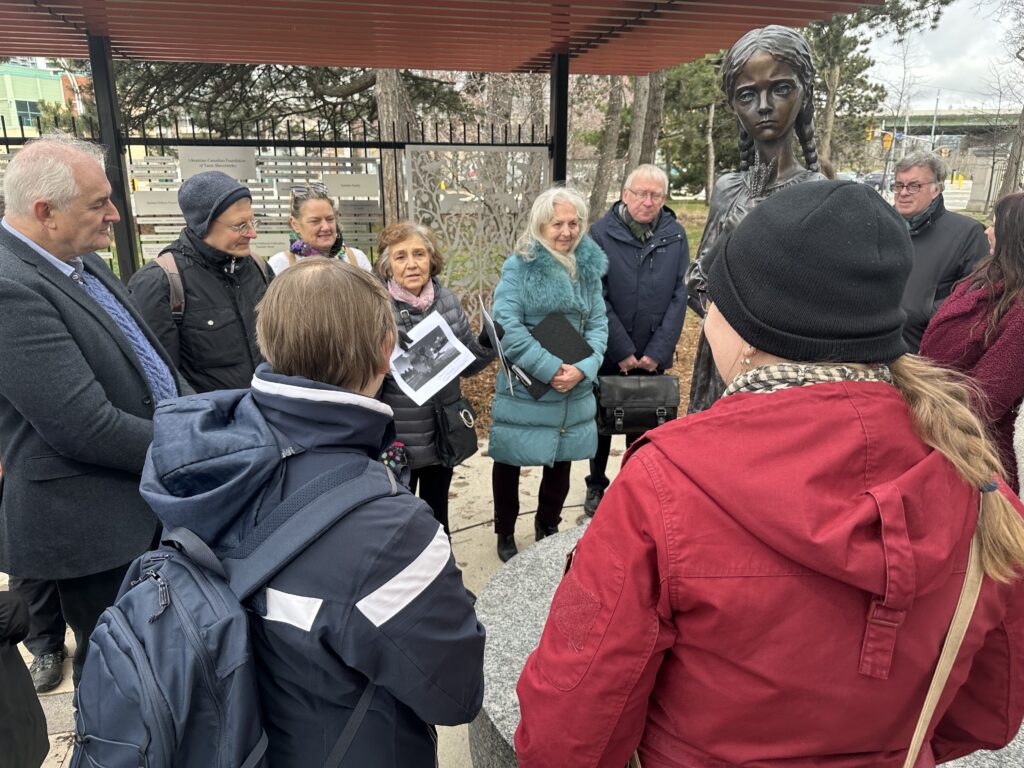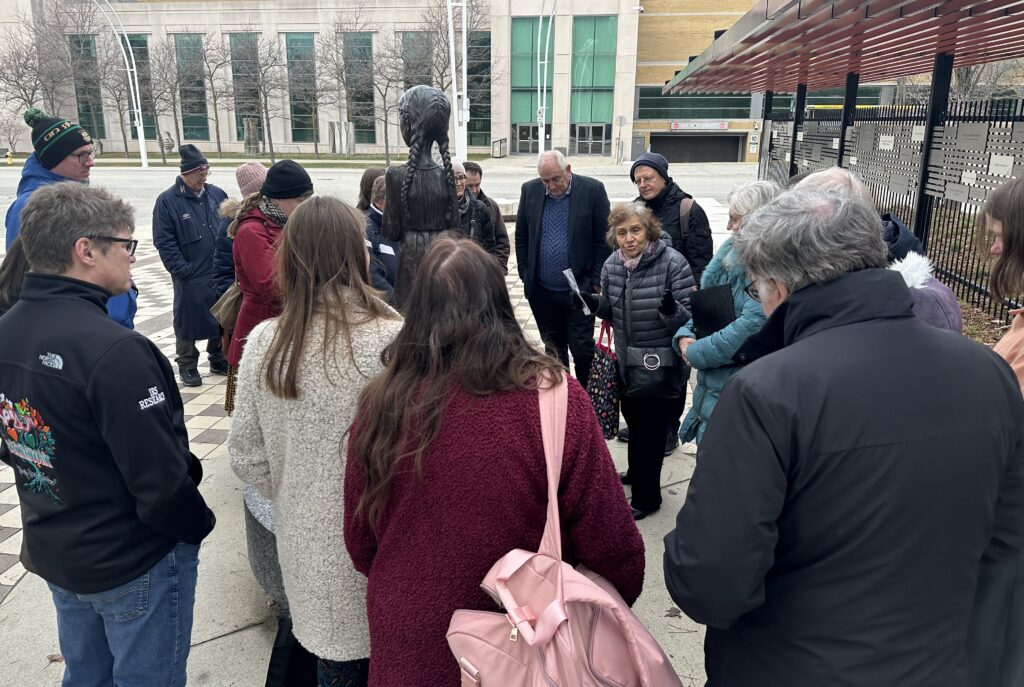Global Perspective on Heritages of Hunger conference | Heritages of Hunger Consortium | Charbonnel Lounge, St. Michael’s College, University of Toronto
HREC is a partner of the Heritages of Hunger Consortium, an initiative from Radboud University in the Netherlands, focusing on “Societal Reflections on Past European Famines in Education, Commemoration and Musealisation.” They seek to contribute towards overcoming divisions among European communities by analyzing European famines connected to episodes of war, neglect, and environmental crisis which continue to function as negative European heritage, but can also evoke transeuropean solidarity via the relief schemes and mediations their legacies engendered. By investigating and reassessing current practices of education in schools, museums, heritage sites and surrounding commemorations around famine and hunger (1845-1947) as specific dimensions of Europe’s troubled modern pasts, the Consortium will develop educational resources and recommendations that strengthen the consciousness of transeuropean legacies in heritage initiatives.

In 2024, HREC Research co-organized, and HREC ED participated in, the Consortium’s final in-person conference in Toronto (April 3-5th, 2024) in and around St Michael’s College at the University of Toronto. This conference took place during April Genocide Remembrance, Condemnation and Prevention Month and was the culminating meeting of this global consortium’s network of educators, researchers, and institutions related to the global European famines project. It was a summation of research that has been done to date on European famines throughout history, and new research undertaken by younger scholars, including on the Holodomor. International experts on famine came together to present, discuss and exchange ideas, with a varied cultural programme and informative keynotes by Stephen Devereux (University of Sussex, UK), Lisa Kirschenbaum (West Chester University, PA) and Alex de Waal (Fletcher School of Law and Diplomacy, Tufts University, MA).
The conference brought together research on famines across the world: from Janam Mukherjee’s excellent presentation on the Bengal Famine of 1943, to James Daschuk’s on food crisis among the Indigenous people of Saskatchewan, to Lotte Jensen’s comparative work on the Dutch and Flemish famines of the nineteenth century. The programme was also notably interdisciplinary. While Steven Devereux’s keynote ‘From Lands of Famine to Anti-Famine Contracts: Is the Heritage of Hunger No More Hunger?’ took a sociological perspective on global famine, with close attention to international metrics and declarations, Lisa Kirschenbaum’s ‘Bodies, Gender, and theHeritages of Hunger’ was art historical: providing a comparative analysis of figures in famine monuments in Russia, Ireland and Ukraine. The power of artistic responses to famine was further demonstrated by screenings of Arracht, a feature film on the Irish famine, and Seeds of Hunger, a documentary on the Holodomor.

On the final day of the Global Perspectives on Heritages of Hunger conference, participants were led on an excursion to see sites of famine heritage in Toronto. Standing in Ireland Park and the Holodomor Memorial Parkette, leaders behind the construction of these memorials talked about the hard work of creating them and remembering famine pasts. Valentina Kuryliw led an excursion to the Toronto Holodomor Memorial on the CNE Exhibition Grounds near the Prince’s Gates with former UCC-Toronto President Oksana Rewa, Chair of the Holodomor Monument Committee responsible for its erection. A bus took approximately 35 participants to the site where they listened to presentations on the recognition and memorialization of the Holodomor in Canada, its inclusion into the Canadian educational curriculum, and the importance of the monument for Canada and the Toronto community, the largest Ukrainian community in the country.
Heritages of Hunger is an international project coordinated by Marguerite Corporaal of Radboud University (RU), and headed by: Radboud University, the Wageningen University & Research (WUR), and the Institute for War, Holocaust and Genocide Studies (NIOD), The Netherlands. HREC has been a partner since the beginning of this project to inform and share educational practices on the topic of the Holodomor.
For more about the Heritages of Hunger Project and Consortium:
- https://www.ru.nl/en/research/research-projects/heritages-of-hunger
- https://www.nwo.nl/en/projects/nwa116018197
- https://www.tandfonline.com/doi/full/10.1080/13527258.2020.1869579
